

Hit Factory
Hit Factory
A podcast about the films of the 1990s, their politics, and how they inform today's film landscape. Exploring the output of a seemingly bottomless decade. America's first and only movie podcast.
Episodes
Mentioned books
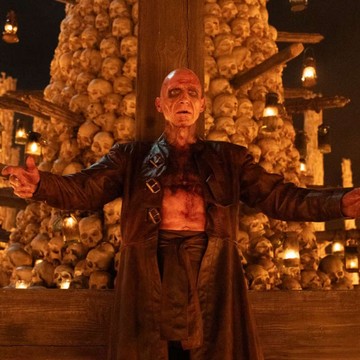
Feb 1, 2026 • 7min
"What Have You Watched with Me Lately?" (Hit Factory's Month in Movies - January 2026) *TEASER*
Get access to this entire episode as well as all of our premium episodes and bonus content by becoming a Hit Factory Patron for just $5/month.Something new for our faithful Patrons - A conversation about all the movies, new and old, that we've been enjoying this month not covered elsewhere on the show. We hope you enjoy!....Our Theme Song is "Mirror" by Chris Fish.
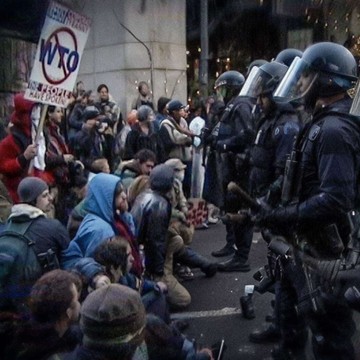
Jan 22, 2026 • 48min
BONUS: WTO/99 Interview w/ Ian Bell & Alex Megaro
WTO/99 is a new, immersive archival documentary that depicts the four-day clash between the then-emerging World Trade Organization (WTO) and the 40,000+ people who took to the streets of Seattle in 1999 to protest the WTO Conference and the WTO’s impact on human rights, labor, and the future effects of continued globalization.Aaron sat down with WTO/99 director/co-editor Ian Bell and producer/co-editor Alex Megaro to discuss the film's bracing depiction of the WTO protests, their prevailing ramifications in the 2020s, and whether the event's radicalizing groundswell is replicable in today's polarized political reality.WTO/99 has its Bay Area debut at The Roxie next Wednesday 1/28/26. Find tickets HERE. WTO/99 returns to the Bay Area Tuesday 2/24/28 at The New Parkway. Find tickets HERE. Find more upcoming screenings of WTO/99.Watch the trailer for WTO/99.....Our theme song is "Mirror" by Chris Fish.

Jan 17, 2026 • 1h 29min
Hyenas
This week, we're discussing the winner of our latest Patreon poll, Senegalese auteur Djibril Diop Mambéty's Hyenas. Adapting Swiss-German playwright Friedrich Dürrenmatt's 1956 satirical tragicomedy The Visit and transposing its story onto post-colonial Senegal, the film tells the story of Dramaan Drameh, a grocer in the poor town of Colobane, whose life is upended when a former flame, Linguère Ramatou, returns to the town after decades. Having amassed a large fortune in the intervening years, Ramatou makes the township a disquieting offer - she will bestow her fortune onto Colobane in exchange for the murder of Drameh as revenge for abandoning her following a pregnancy during their brief love affair. Gorgeously-lensed, blackly satirical, and ultimately tragic, Hyenas imbues its tense tale of vengenace and greed with resonances examining Senagal's (and the greater continet of Africa's) subjugation under western capitalism in the post-colonial period. We begin with a discussion of Senegal's cinema, its anti-colonial dimensions, and how the rhythms of Mambéty's film antagonize western modes of narrative and filmmaking. Then, we examine the film's exploration of the corrupting nature of capital, and how forces like the International Monetary Fund and World Bank acted as coercive mechanisms for privatization and neoliberal policy in Africa and throughout the developing world. Finally, we discuss the film's sexual politics, where we feel its metaphors break down in its exploration of the character of Ramatou, and where fidelity to source material occasionally muddles the film's incisive colonial critique. Get access to all of our premium episodes and bonus content by becoming a Hit Factory Patron for just $5/month.....Our theme song is "Mirror" by Chris Fish.
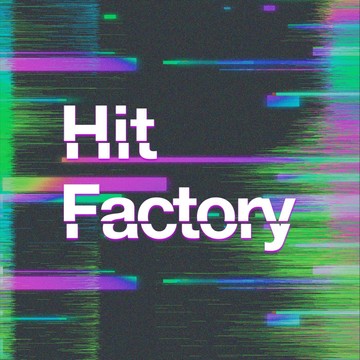
Jan 7, 2026 • 1h 35min
Hit Factory's 2025 Digestif
The party is nearing its end, the food has been consumed, and now it's time to pour yourself a rich, spicy, herbaceous(?) after-dinner drink to aid in the digestion of all your elsewhere and elsewhile 2025 year-end content... It's the Hit Factory 2025 Digestif: A rundown of some of our favorite un-discussed films of the past year as well as some brilliant new-to-us discoveries...A low-stakes sporting event becomes a metaphor for the cinematic experience. A high school becomes a microcosm of our technofascist panopticon. A mother at the end of her rope. An artist at the end of his prime. These and more are explored within. So pull up a stool, grab yourself a glass, and kick back one more before we call it a night. Get access to all of our premium episodes and bonus content by becoming a Hit Factory Patron for just $5/month.....Our theme song is "Mirror" by Chris Fish.
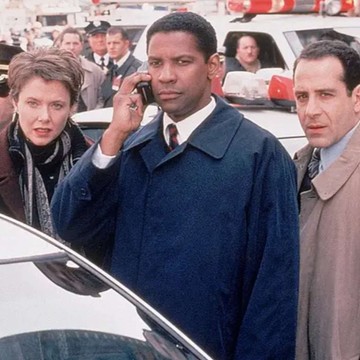
Dec 30, 2025 • 2h 39min
DENZEMBER 2 VOL. V - The Siege feat. Séamus Malekafzali
Denzember concludes as Journalist and host of the Turbulence podcast Séamus Malekafzali returns to the show to discuss Edward Zwick's 1998 geopolitical thriller The Siege, a film about a Muslim terrorist cell wreaking havoc on New York City, the resultant fear it stokes, and the vidictive results of martial law being enforced in an American city. Largely lost to time as an artifact of The End of History, the film nonetheless rings with a startling prescience as a pre-9/11 document of Hollywood's casual anti-Arab sentiments (even among well-meaning liberal sects), and trust in American institutions to disavow bad actors and preserve democracy.We begin by dissecting the films amorphous, byzantine, and *totally fabricated* understanding of Middle Eastern geopolitics, and how its obfuscations function as a tool of propaganda, making the threat of Muslim extremism feel omnipresent and unknowable. Then, we consider how the film contends with imperial blowback, individuating it as mistakes by discrete actors rather than the guiding policy of America's geopolitical meddling across the globe. Finally, we reckon with the film's countless contradictions, its liberal posturing toward the "right" kind of wariness toward extremism, and its unconscious buttressing of the same ideologies that lead to fascist persecution of The Other. Follow Séamus Malekafzali on Twitter.Listen and Subscribe to Turbulence Podcast. Subscribe to Séamus' Substack. Get access to the whole Denzember experience, all of our premium episodes and bonus content, and an invite to the Hit Factory Discord by becoming a Hit Factory Patron for just $5/month.....Our Denzember Theme Song is "Funk" by Oppo.
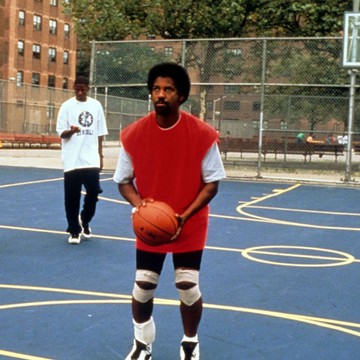
Dec 23, 2025 • 13min
DENZEMBER 2 VOL. IV - He Got Game feat. Robert Daniels *TEASER*
Get access to this entire episode, the entire Denzember catalog, and all of our premium episodes by becoming a Hit Factory Patron for just $5/month.Roger Ebert Associate Editor Robert Daniels returns to the show to once again discuss the work of Denzel Washington and Spike Lee, this time unpacking his brilliant 1998 sports drama He Got Game. The film stars Denzel Washington as Jake Shuttlesworth, an Attica inmate who is tasked with getting his high school basketball prodigy son, Jesus (Ray Allen), to commit to playing for the governor's alma mater in exchange for a reduced prison sentence. A film as concerned with the capitalist mechanisms undergirding basketball culture as it is with acknowledging the intoxicating allure of the game's myth, Spike crafts a uniquel rewarding sports movie in a melodrama's skin. We begin with a discussion about Spike's formal ingenuity, and how he positions basketball as inextricable from broader Americana; a definitive part of American culture. Then, we praise the dual leading performances of Denzel Washington and NBA star Ray Allen. Finally, we disscuss the film's showstopper final act, showcasing Denzel and Allen's skills on the court in a brilliantly pitched one-on-one game that approaches the sublime, even supernatural.Follow Robert Daniels on Twitter.Read Robert on the musical direction of Spike Lee films at Letterboxd.....Our Denzember theme song is "Funk" by Oppo.
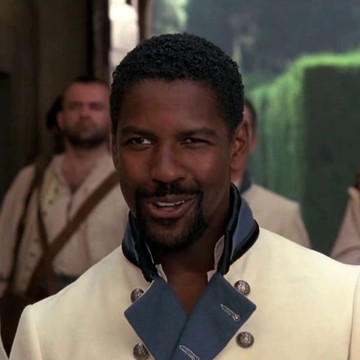
Dec 17, 2025 • 2h 6min
DENZEMBER 2 VOL. III - Much Ado About Nothing feat. Bobbi Miller
Denzember continues with Culture Kitsch host Bobbi Miller joining us to discuss Kenneth Branagh's 1993 Shakespeare adaptation Much Ado About Nothing. Following his successful Henry V adaptation, Branagh returned to Shakespeare for a much airier, light-hearted affair, fashioning the classic play into an immensely pleasurable studio romantic comedy while preserving the spirit and (more importantly) the language of Much Ado..., assembling a showstopper ensemble led by Branagh, Emma Thompson, Michael Keaton, Keanu Reeves, and Denzel as Don Pedro of Aragon, nearly 30 years before he would take on The Tragedy of Macbeth. We begin with a discussion of Branagh's formal tendencies, how his maximalism works for the genre, and illuminate his underremarked upon technical prowess. Then, we discuss what Branagh's Much Ado... preserves from Shakespeare's stage, what it omits, and how these ommissions speak to the film's position as an End of History artifact interested in reifying traditional family values centered around monogamous, heterosexual couplings. Finally, we discuss how Denzel's Don Pedro is utliized narratively and thematically in the film, and how Denzel's movie star persona and race factor into our perception of the character. Follow Bobbi Miller on Twitter.Watch and Subscribe to Culture Kitsch on YouTube.Get access to the whole Denzember experience, all of our premium episodes and bonus content, and an invite to the Hit Factory Discord by becoming a Hit Factory Patron for just $5/month.....Our Denzember Theme Song is "Funk" by Oppo
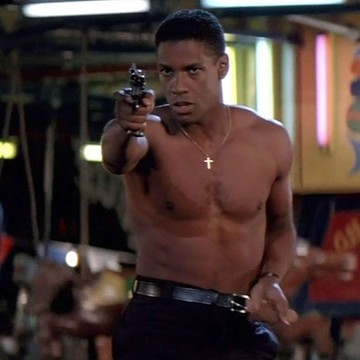
Dec 9, 2025 • 7min
DENZEMBER 2 VOL. II - Ricochet feat. Bilge Ebiri *TEASER*
Get access to this entire episode, the entire Denzember catalog, and all of our premium episodes by becoming a Hit Factory Patron for just $5/month.Denzember 2 continues with the return of Vulture Film Critic Bilge Ebiri and a spirited discussion of Russel Mulcahy's 1991 thriller Ricochet, a film of lean premise that takes its story to absolutely batshit places at every turn. With the ever-capable journeyman director Mulcahy at the helm, a sturdy script from Die Hard writer Steven E. de Souza, and committed performances from Denzel Washington and John Lithgow, the film finds a way to make every one of its scenes memorable by maintaining its ludicrous energy from start to finish and finding lurid thrills behind every corner.We begin with an appraisal of our experiences with Ricochet, and the delight of finding a film marketed as a boilerplate thriller doing everything it can to shock and disarm you. Then, we examine the deceptively intelligent plotting of the film, pitting Denzel's Assistant DA Nick Styles - an ambitious Black lawyer seeking opportunity in the justice system- against not just Lithgow's psycopathic murderer on a quest for revenge but also the collective biases of the media and elite centers of institutional power that readily see Styles as an interloper in their predominantly white spaces. Finally, we discuss the rare position of Denzel as a movie star, how he stands singularly as both an actor of profound versatility and one that inhabits an intoxicating Movie Star persona.Follow Bilge Ebiri on Twitter....Our Denzember theme some is "Funk" by Oppo.
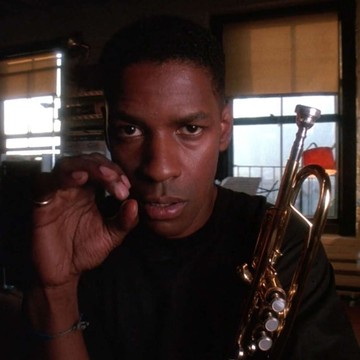
Dec 1, 2025 • 1h 60min
DENZEMBER 2 VOL. I - Mo' Better Blues feat. Minnie Zondi
It's the most wonderful time of the year! Denzember 2 kicks off with a conversation about Spike Lee and Denzel Washington's first collaboration, 1990's Mo' Better Blues, a film about jazz, art-making, and the pursuit of greatness at the expense of personal relationships. The terrific Minnie Zondi is our guest! We discuss the film's tepid reception upon release, and how a (predominantly white) critical audience failed to understand the political dimensions of a film about Black music and its commercial and social appropriation. Then, we reflect on Spike Lee's career and his brilliant cohort of collaborators, including composer Terence Blanchard (making his first appearance on a Spike Lee soundtrack), cinematographer Ernest R. Dickerson, and the electric stylings of costume designer Ruth E. Carter. Finally, we reflect on the movie's complicated ending, and what we're to make of its reflections on artistry, family, and whether exceptional talents can hold the two in balance. Follow Minnie Zondi on Twitter. Follow Minnie on Substack. Read Minnie's Twitter thread on Ruth E. Carter's costume work for Ryan Coogler's Sinners.Get access to the whole Denzember experience, all of our premium episodes and bonus content, and an invite to the Hit Factory Discord by becoming a Hit Factory Patron for just $5/month.....Our Denzember Theme Song is "Funk" by Oppo
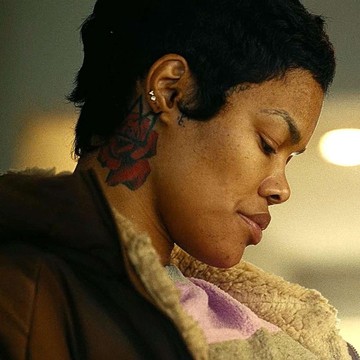
Nov 30, 2025 • 9min
BONUS: One Battle After Another
Get access to this entire episode as well as all of our premium episodes and bonus content by becoming a Hit Factory Patron for just $5/month.Better late than never, we're back with a conversation about Paul Thomas Anderson's recent critical and box office sensation One Battle After Another. PTA loosely adapts (and updates) Thomas Pynchon's 1990 novel Vineland, setting the story against the backdrop of an indeterminate moment in the 21st century to tell a story of washed-up revolutionary Bob Ferguson (Leonardo DiCaprio), who is dragged back into the fray when an old enemy (Sean Penn) resurfaces and threatens his teenage daughter (Chase Infiniti). The film represents the first time in over 20 years that Anderson has set a story in contemporary times, and he uses the opportunity to examine the current landscape of America, its political fissures, and to lay out his personal vision of a hopeful future staked out by the next generation...But Anderson also readily betrays the limits of his political vision, and his myopic understanding of the circumstances that have produced and perpetuated this country's bigotries and oppressive hierarchies. While One Battle After Another offers countless pleasures as an obeject of undeniable cinematic energy and craftsmanship, it fails to elucidate a coherent sociopolitical ideology, even as it readily co-opts and aestheticizes the langauge and iconography of radical leftwing militancy.We unpack the film's many contradictions, and key in to what makes OBAA a simultaneously riveting and frustrating watch. Then, we discuss the film's treatment of race and the cadre of brilliant Black actresses who mine depth and nuance out of Anderson's elliptical storytelling. Finally, we call for a deeper discourse about the film that makes room for its many contradictions and shortcomings, arguing that these jagged edges make the film a more urgent and enduring work than insistences on its perfection.Read Angelica Jade Bastién, on One Battle After Another at VultureRead Lyvie Scott on One Battle After Another at Inverse....Our Theme Song is "Mirror" by Chris Fish.


